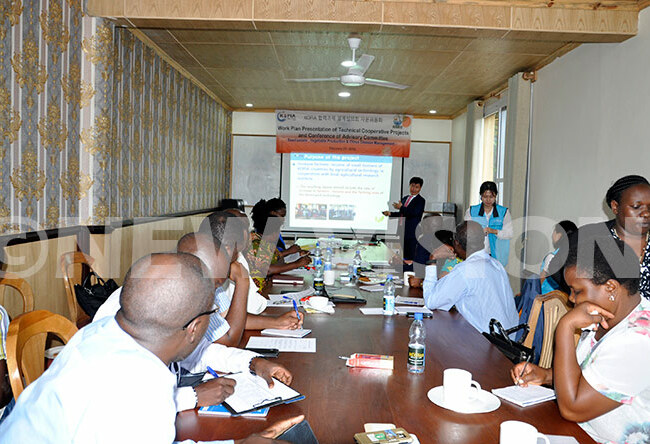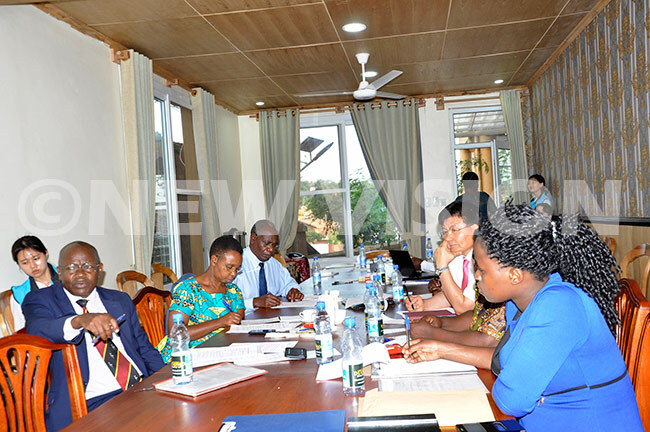Embrace technology, value addition for increased productivity
Feb 22, 2019
Park said this on Thursday, at the KOPIA’s annual project evaluation meeting.

FARMING|TECHNOLOGY
KAMPALA - The new Director for the Korea Project on International Agriculture, (KOPIA) Uganda Centre, Dr. Taeseon Park has advised Ugandan farmers to embrace technology and value addition if they are to increase productivity and income.
Park said this on Thursday, at the KOPIA's annual project evaluation meeting where he announced new projects to be funded. The meeting was held at DUOMO Hotel in Mbuya, Kampala.
He added that crop productivity in Uganda is very low, because majority of the farmers practice subsistence farming and on small pieces land.
"I am confident that if Ugandan farmers start to embrace advanced agricultural technologies, it will improve on the productivity as well increase farmers' income," he noted.
KOPIA Uganda Cenrte was established in 2014 to increase small holder farmers' incomes in Uganda and currently, the centre is carrying out projects on production of disease free potato seeds, production of high-value Korean vegetables, and management of orange disease by soil water management techniques.

The project also funds cooperative projects to a tune of $30,000 (about sh101m) per year. This is in addition to an $80,000 (about sh269m) annual fund for the two projects on vegetables and citrus.
As a new Director, Park noted that he will do his best to increase Uganda's small holder farmers' income by developing various projects in various crops and livestock in the near future.
"In order for all projects to be carried out in Uganda, KOPIA, NARO and cooperative agency must concentrate on priority crops and relevant technologies for Ugandan farmers. Developed technologies must be disseminated and adopted rapidly to all farmers that are in need of them," he noted.
Park noted that the current projects executed by KOPIA in Uganda are too simple and are being run on small budgets. So, his focus will be to develop projects in diversified fields, design bigger projects such as model village projects and also expand the budget on which the projects are run.
He called on the project managers to ensure that the commitments made with the KOPIA Uganda Centre are achieved within the agreed time frame. "I would like to reconsider that all projects are not done for Korea but for the good of Uganda farmers," he noted.

Doctor Imelda Kashaija, deputy director general National Agricultural Research Organisation (NARO) said though there are challenges in regards to implementation of the KOPIA projects, the team on ground is trying hard to ensure that the projects are successfully implemented.
Kashaija noted that they always hold regular meetings with the extension officers, KOPIA members and project managers to ensure that all they meet the standards.
Beatrice Namaloba, the principal agriculture extension coordinator at the Ministry of Agriculture, Animal Industry and Fisheries (MAAIF), said KOPIA technical cooperation projects are supposed to demonstrate technologies which government intends to take on when they succeed.
